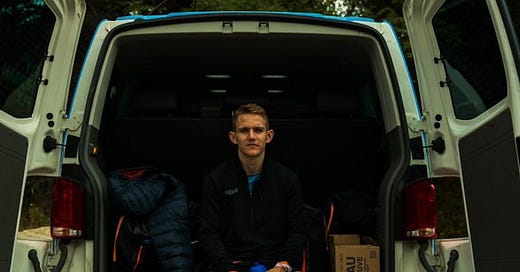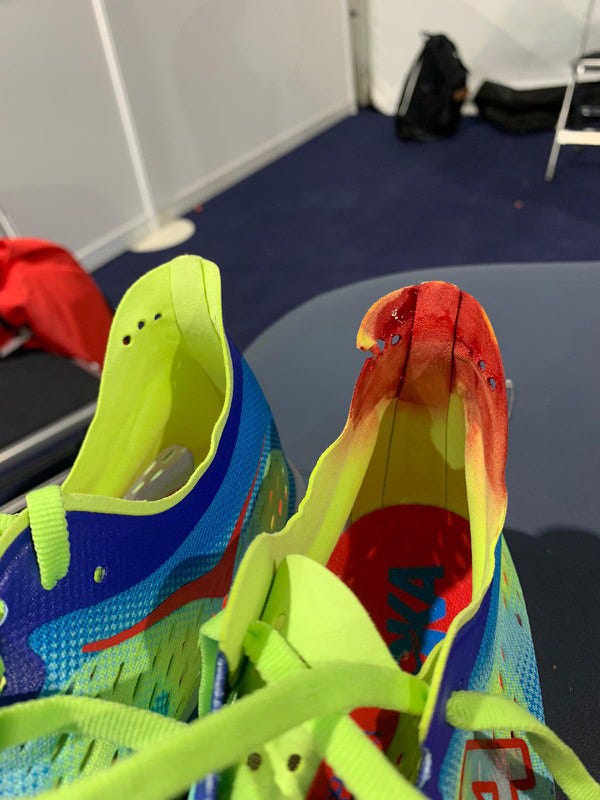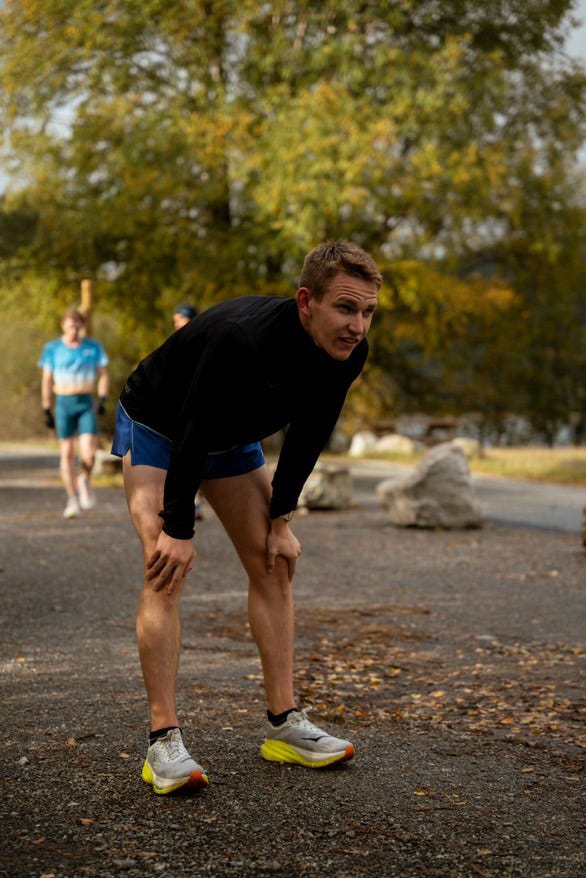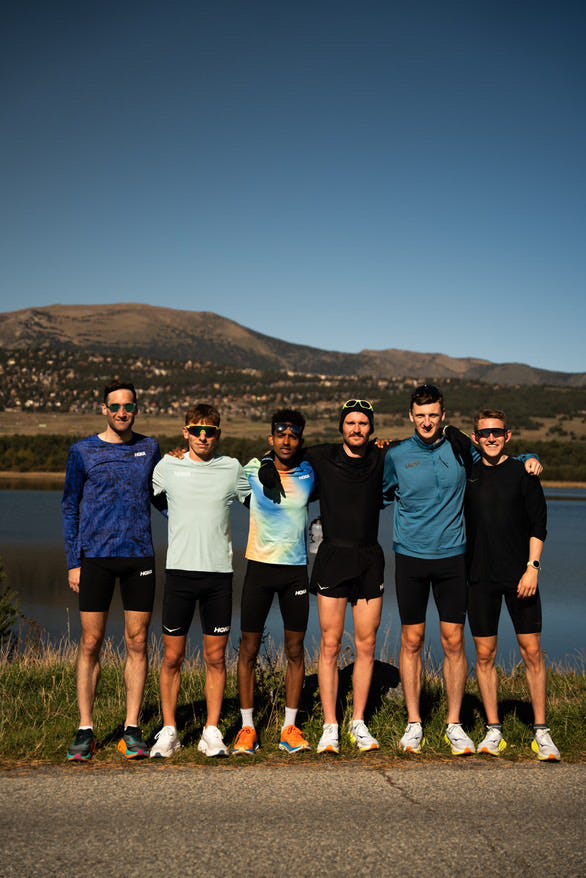Callum Elson: The Cambridge & Coleridge Athlete on the Road to Recovery
Callum Elson returned to racing at the Mansfield National Cross-Country Relays after suffering a partial Achilles tear in a "freak accident" at the World Indoor Championships earlier this year.
Callum Elson, also known as The Distance Project on Instagram and YouTube, made his much-anticipated comeback at the Mansfield National Cross-Country Relays after suffering a partial Achilles tear at the World Indoor Championships earlier this year.
After a gruelling journey of surgery, rehab, and patience, I caught up with Callum following his first race back since the injury. The year had started with promise: a stint training in South Africa, a professional contract, and impressive performances in indoor races. At Boston, he ran the World Indoor qualifying standard and secured a second-place finish at the Indoor British Champs in the 1500m, including a spot on the GB team for the World Indoors in Glasgow.
Glasgow World Indoors 2024
“Glasgow was an incredible experience,” Callum recalled. “It was my first time representing Team GB on the track, and the atmosphere was electric. Being at a home games meant people in the crowd would recognise the GB kit, and it felt special.”
Going into his heat, Callum knew it would be challenging with competitors like Hobbs Kessler and George Beamish, both eventual medallists. “Since my NCAA days, I’ve always made it out of my heats, so I wasn’t worried,” he said. But then, during the race, everything changed.
“Around 600 to 800 meters in, I felt a sharp pain in the back of my leg. I realised I’d been stepped on—a pretty common thing, so I kept going, thinking it was just a stumble. But the whole calf went rock solid, and I couldn’t move. That’s when I saw the blood pouring out from the back of my shoe.”
Callum collapsed on the track, clutching his calf in agony. First aid staff quickly assisted, and he was wheeled off the track in a wheelchair, ending his World Indoors in disappointment. The next day, an MRI confirmed a partial Achilles tear. The doctor told him, “You won’t run for the next six months, and racing again might take a year.”
Down But Not Out
Just like that, Callum’s career had been derailed. A “freak accident,” as he described it, had snatched away his indoor and summer Olympic ambitions. Despite the setback, he documented his recovery on YouTube and was surprisingly upbeat about it.
“I was overwhelmingly positive and light-hearted,” Callum shared. “I joke around a lot in my videos, and that’s just how I am in real life. My girlfriend would say, ‘It isn’t funny; you shouldn’t joke about it,’ but I always said, ‘If you don’t laugh, you’d cry.’ Staying light-hearted helped me cope.”
However, there were tough moments. “After surgery, I couldn’t do anything. I remember just trying to get up and go to the bathroom; it hit me that I couldn’t walk,” he reflected. “When the cast came off, I felt vulnerable. My leg was so weak that even standing felt impossible, let alone trying to get up on my toes.”
But as he pushed through rehab, the transformation was remarkable. “The body is amazing. Little by little, as I kept up with the rehab, it all started coming back.”
The Comeback
Week by week, Callum worked tirelessly to rebuild strength in his injured leg. Although he no longer shares his rehab on Instagram, he admitted that he continues to plug away at it to stay injury-free.
Realistic about his progress, he hasn’t lost his characteristic wit: “If you think you can just jump back in and be at your best, you’re naïve. People train at 100 miles a week, year after year, for one good race. You can’t do nothing for five months and expect to compete at that level again.”
Recently, Callum returned from Font Romeu, where he logged his highest mileage since the injury. Now, he’s eyeing the European Cross-Country Trials in Liverpool with his Team Makou teammates.
Coming down from a stint in Font Romeu, Callum raced the Mansfield National cross-country relays in a bid to see where his fitness was at. Starting his leg in 5th place, he had to work his way through the field if he was to secure a medal for Cambridge and Coleridge. During his leg, he pushed on chasing down the runners ahead of him, and he succeeded, earning a national bronze for his team.
“I’m not running great at the moment,” he admitted with a laugh. “I just need to crack on. If I need to run slow, I’ll run slow and listen to my body. If I need an extra day off for cross-training, I’ll take it. But if I can run daily, even if it’s just fatigue, that’s what I’ll do.”







